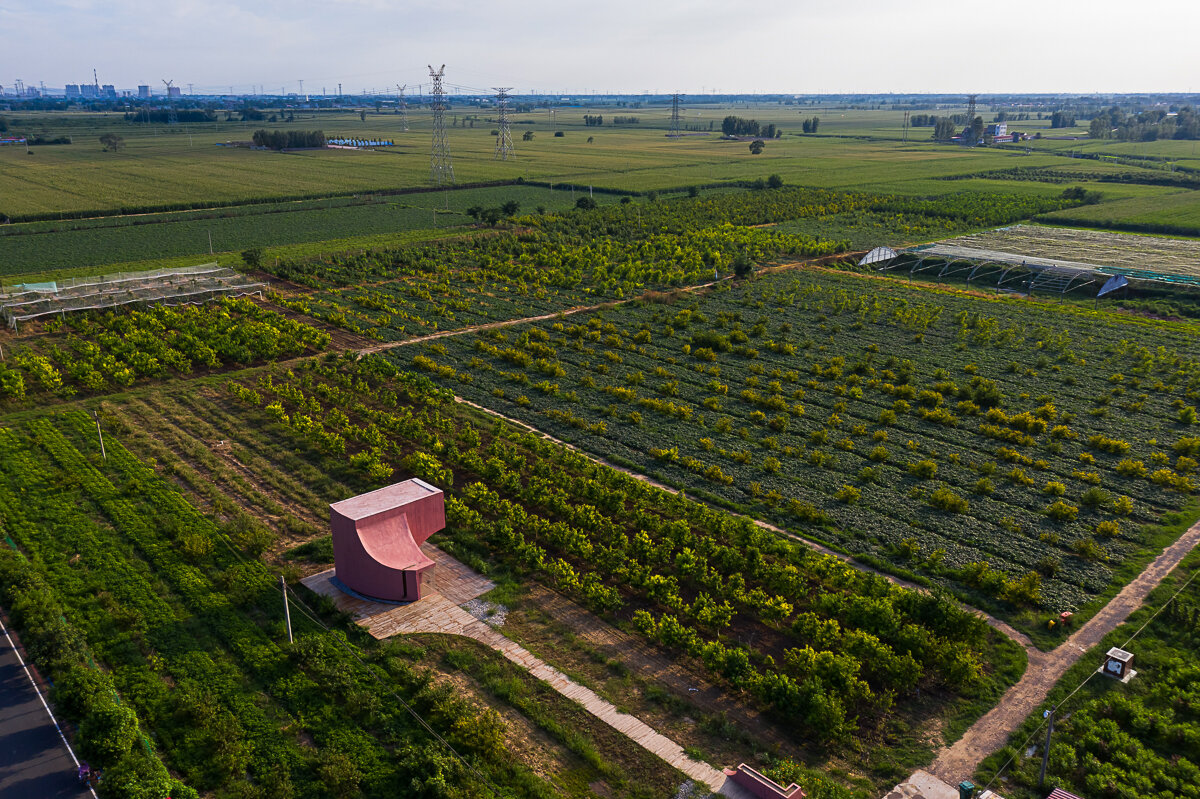
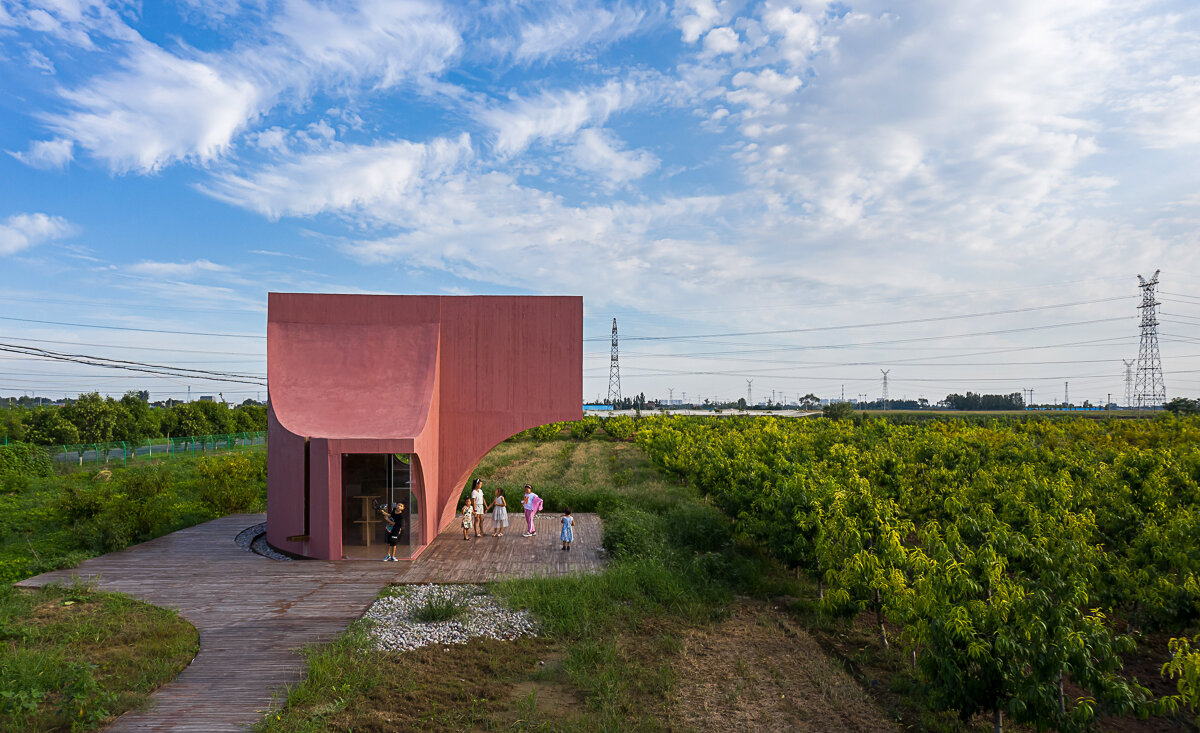
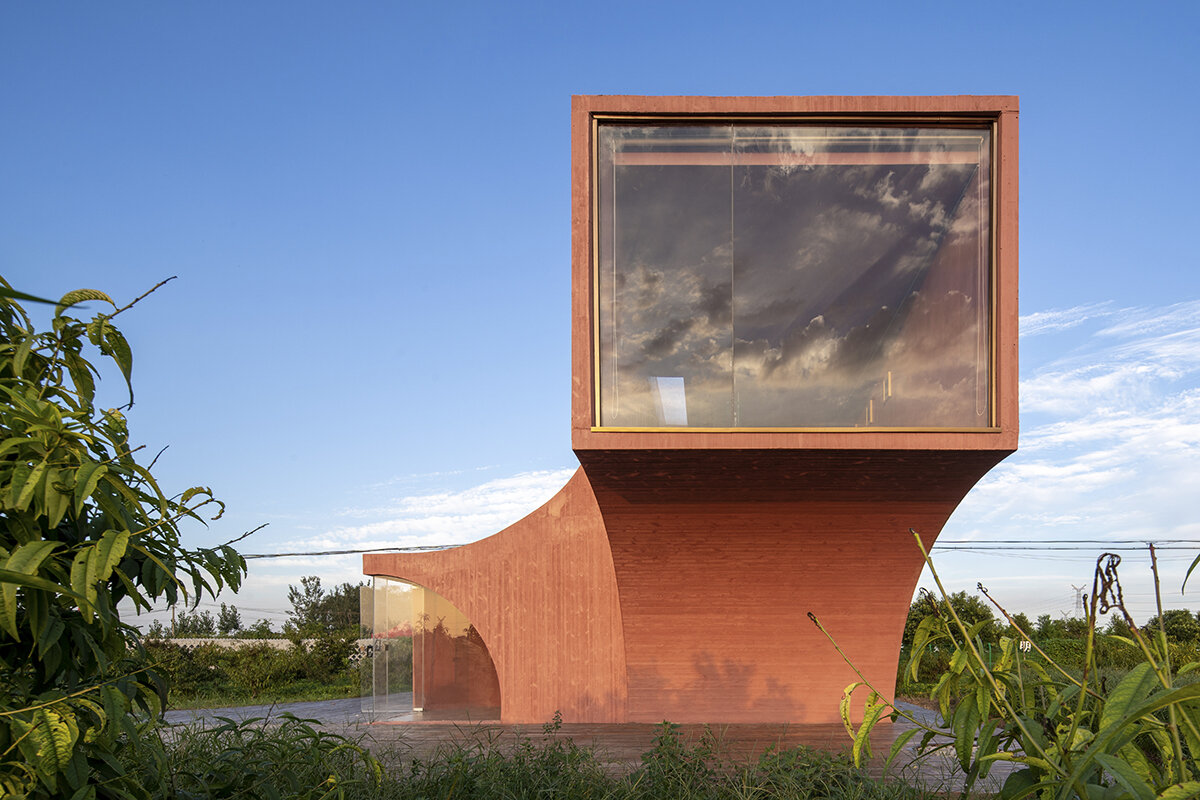
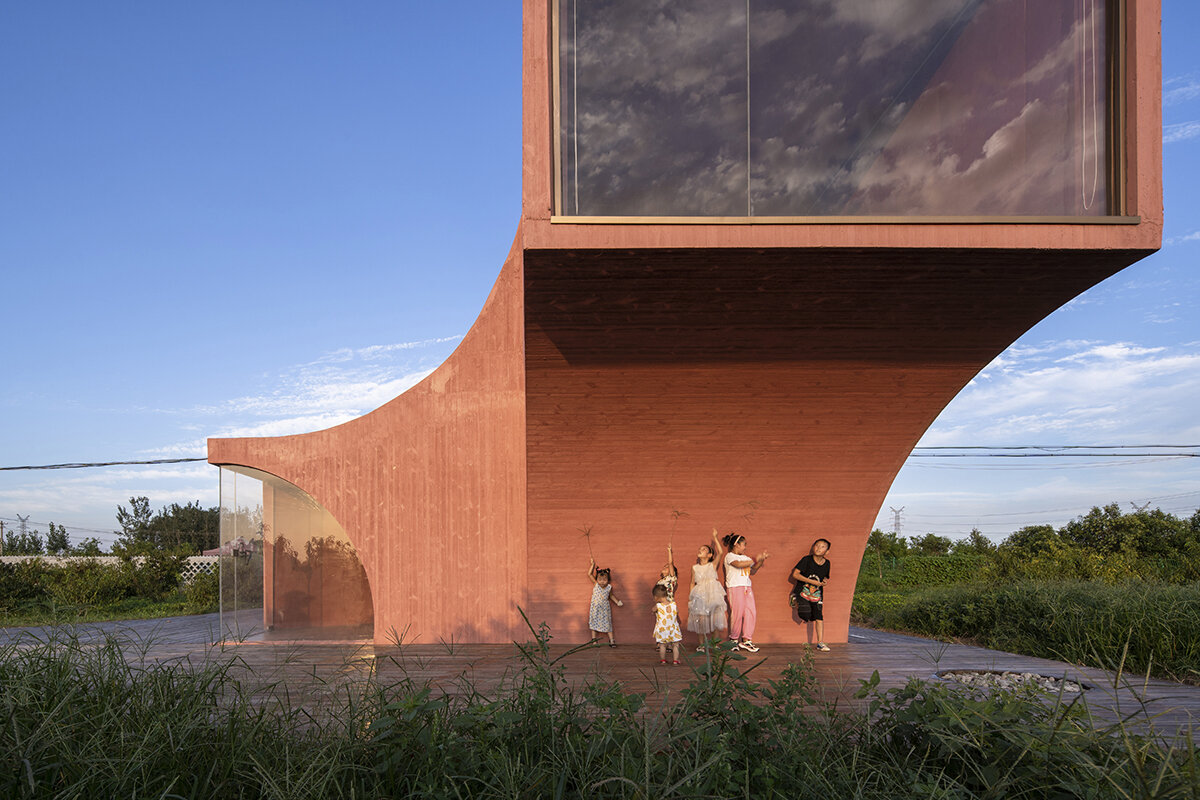
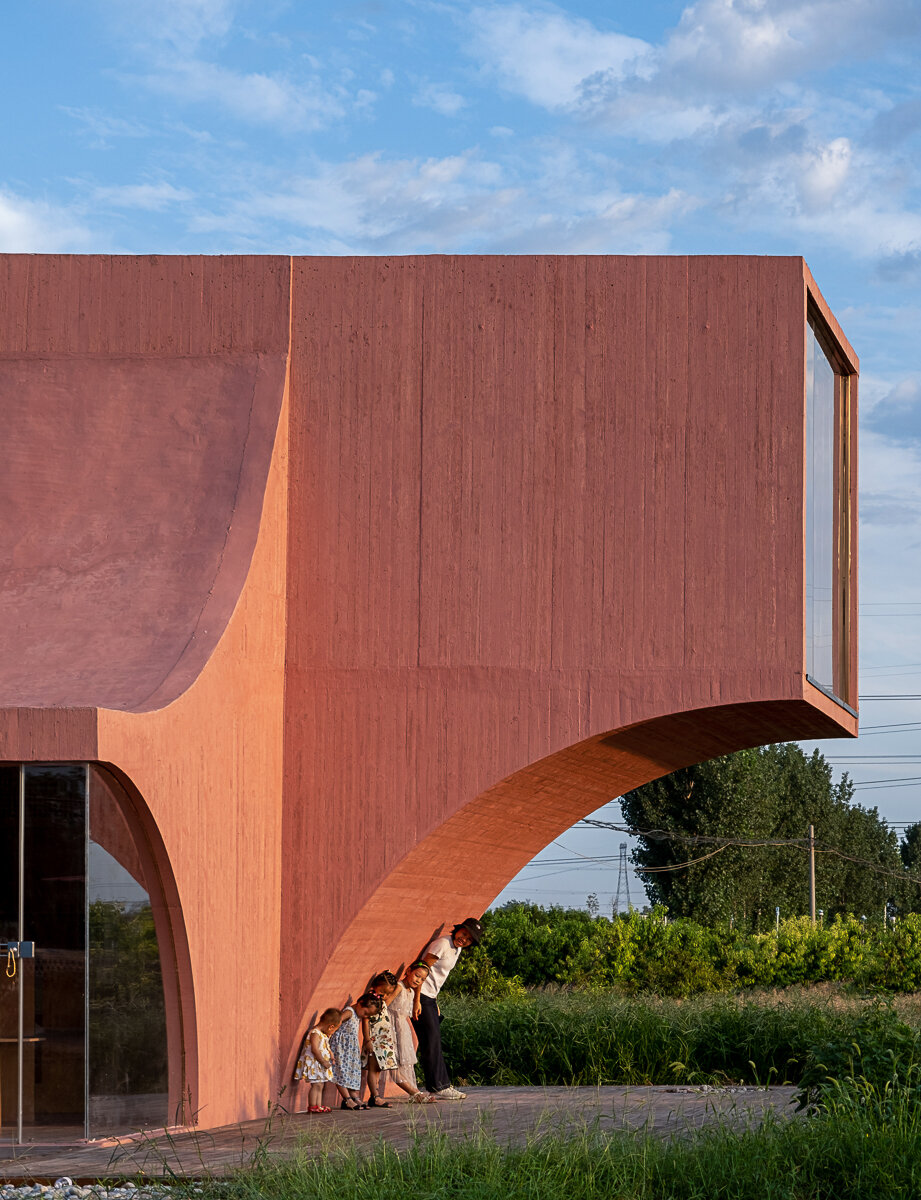
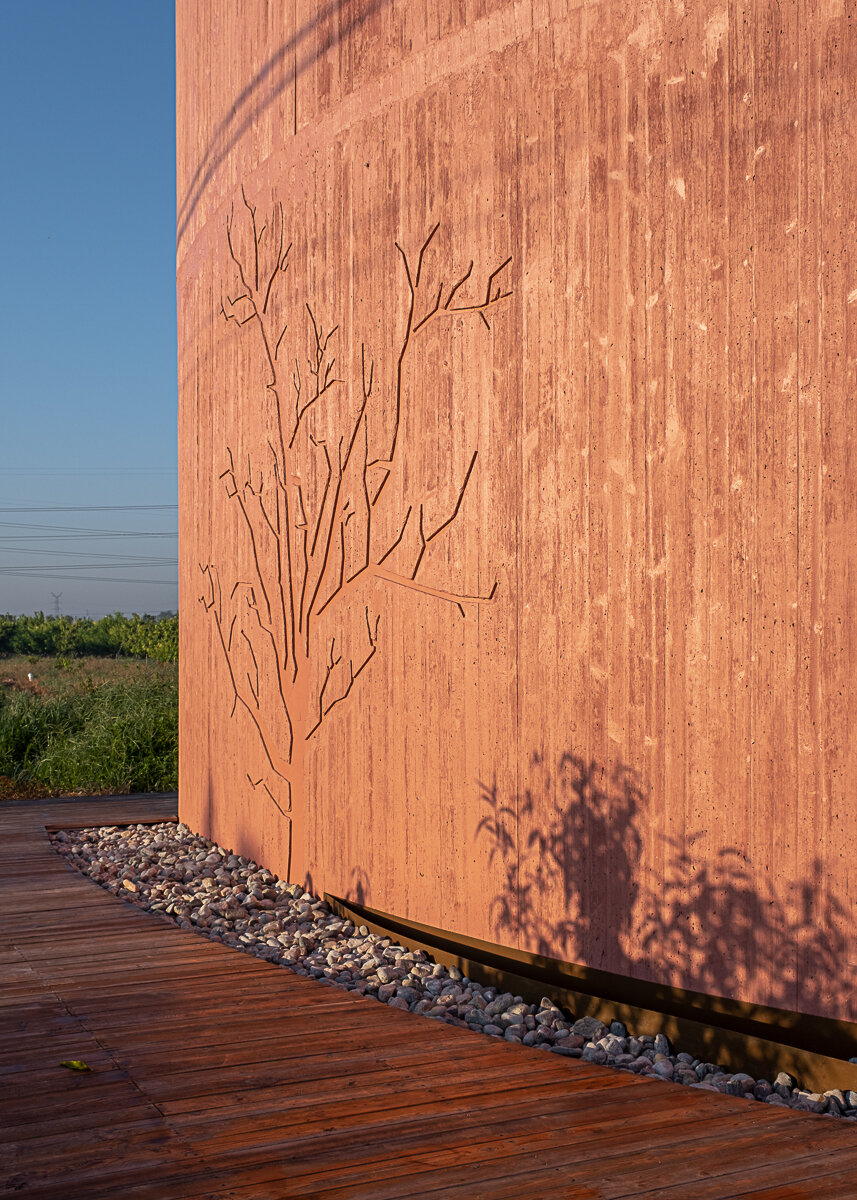
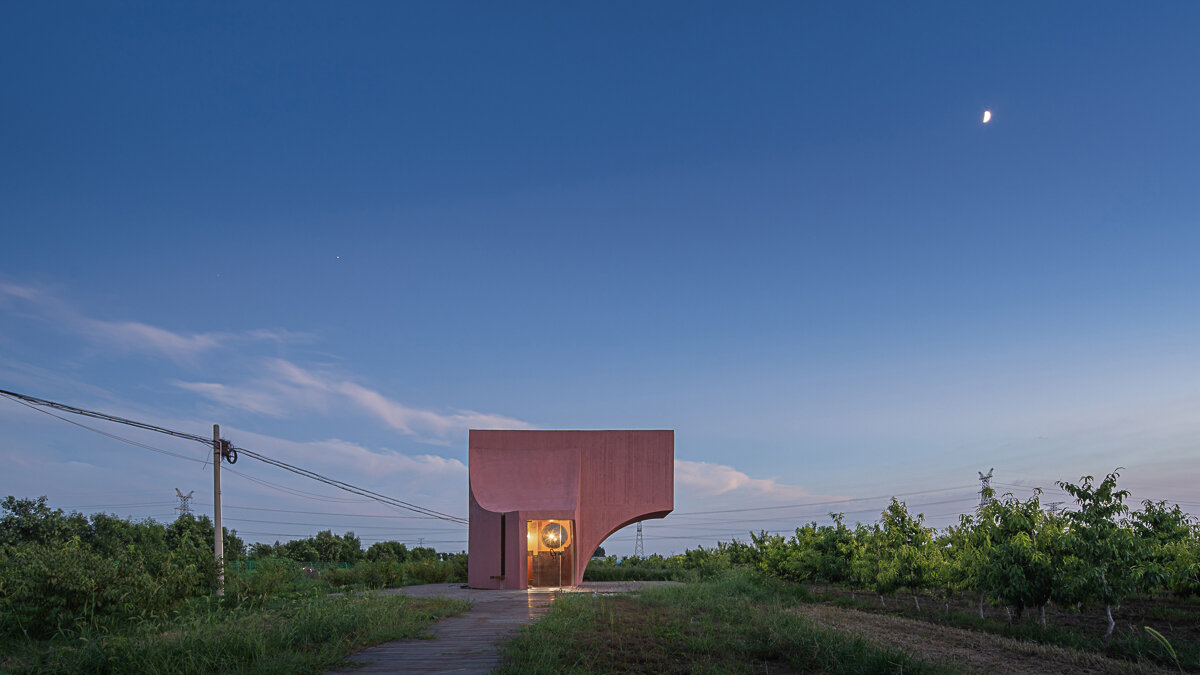
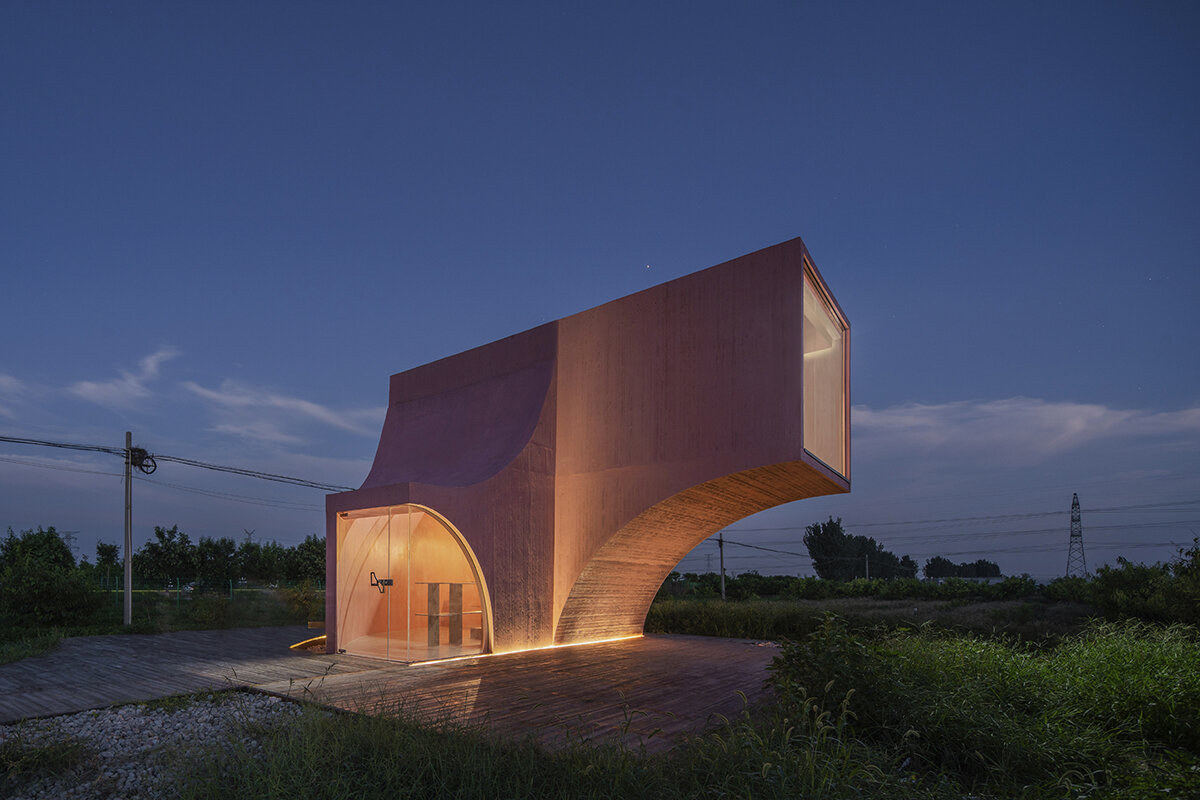
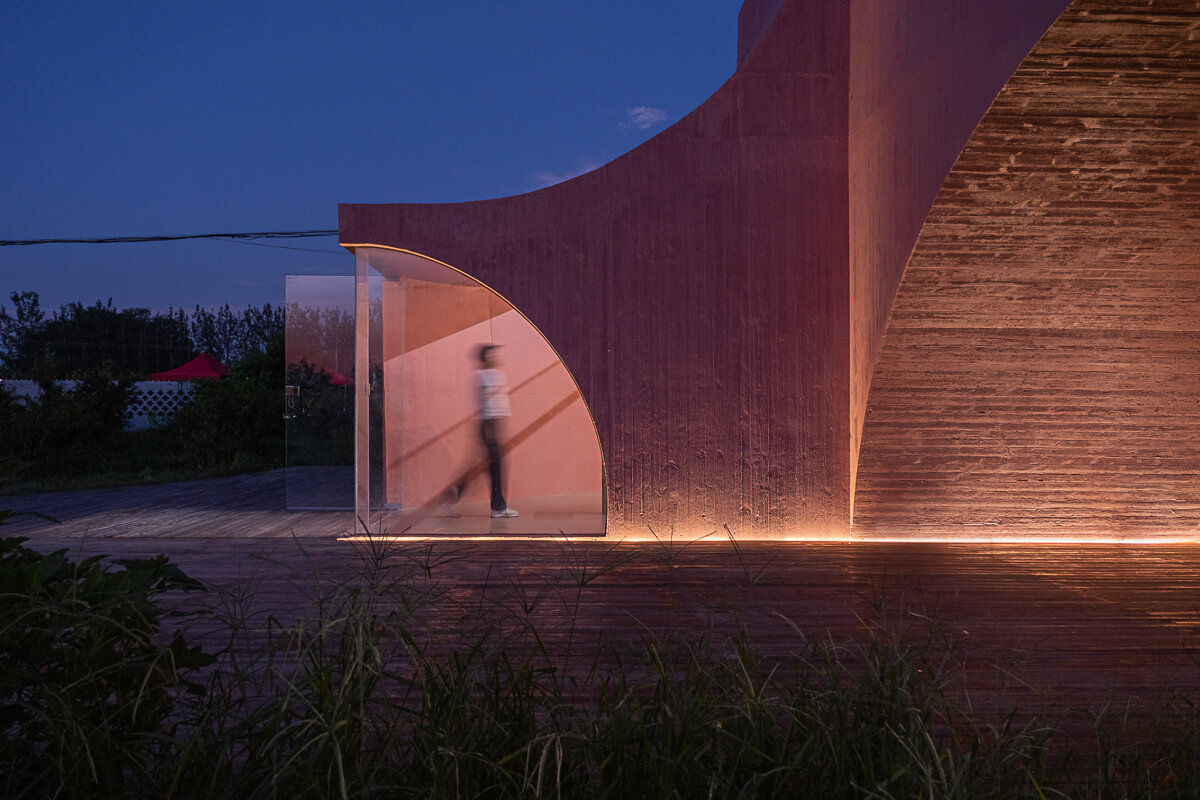
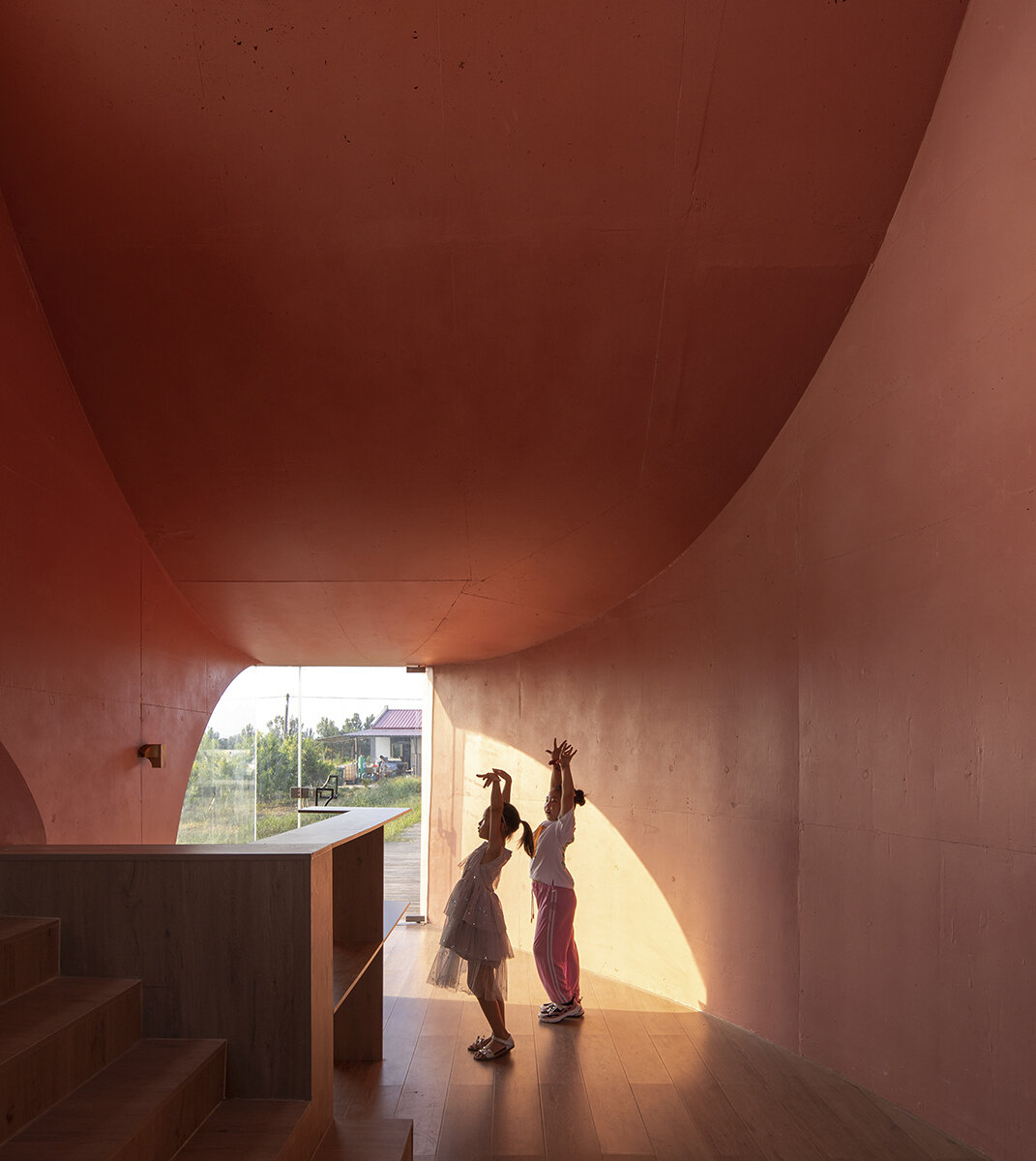
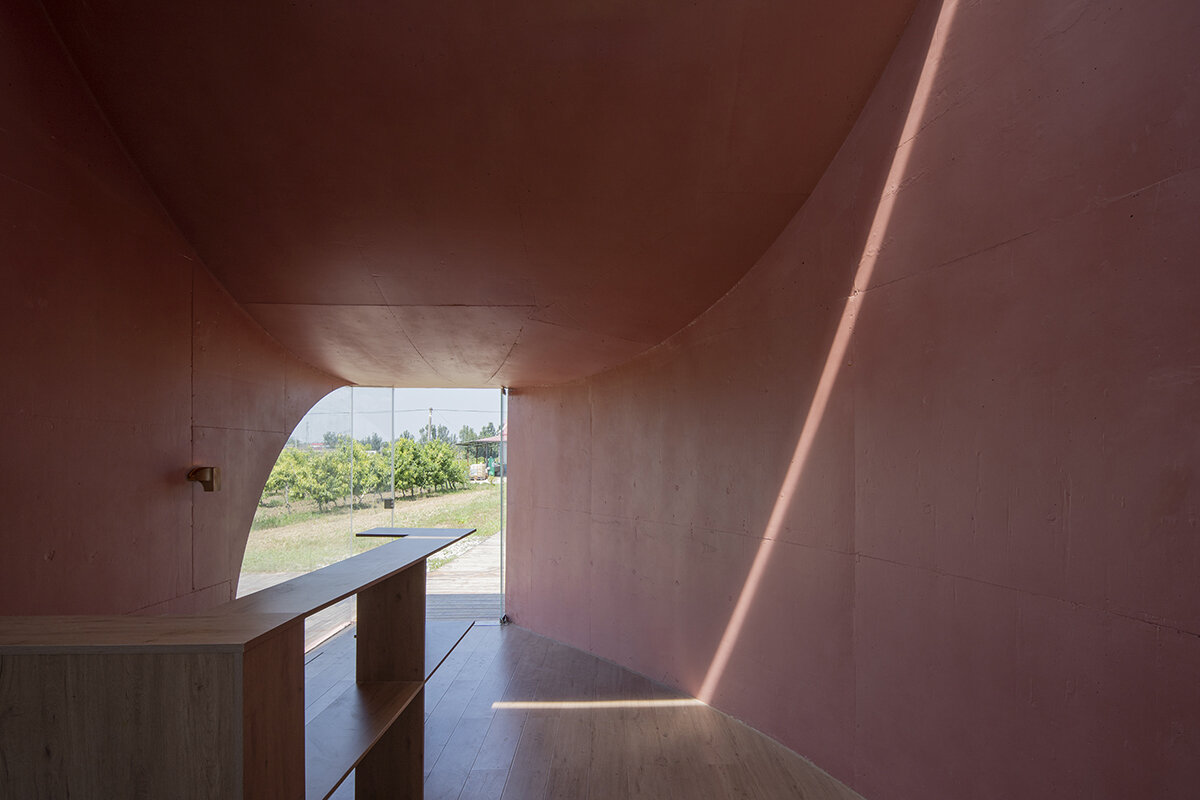
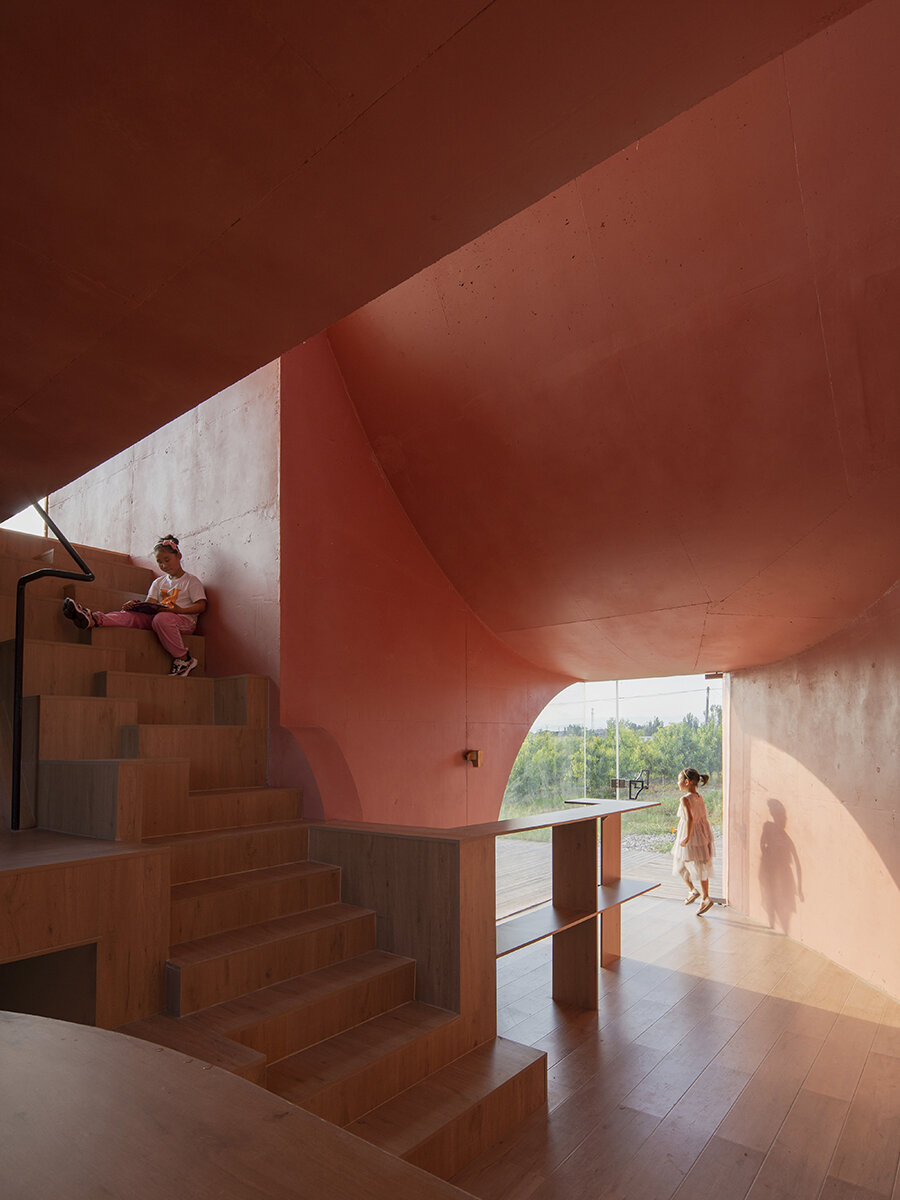
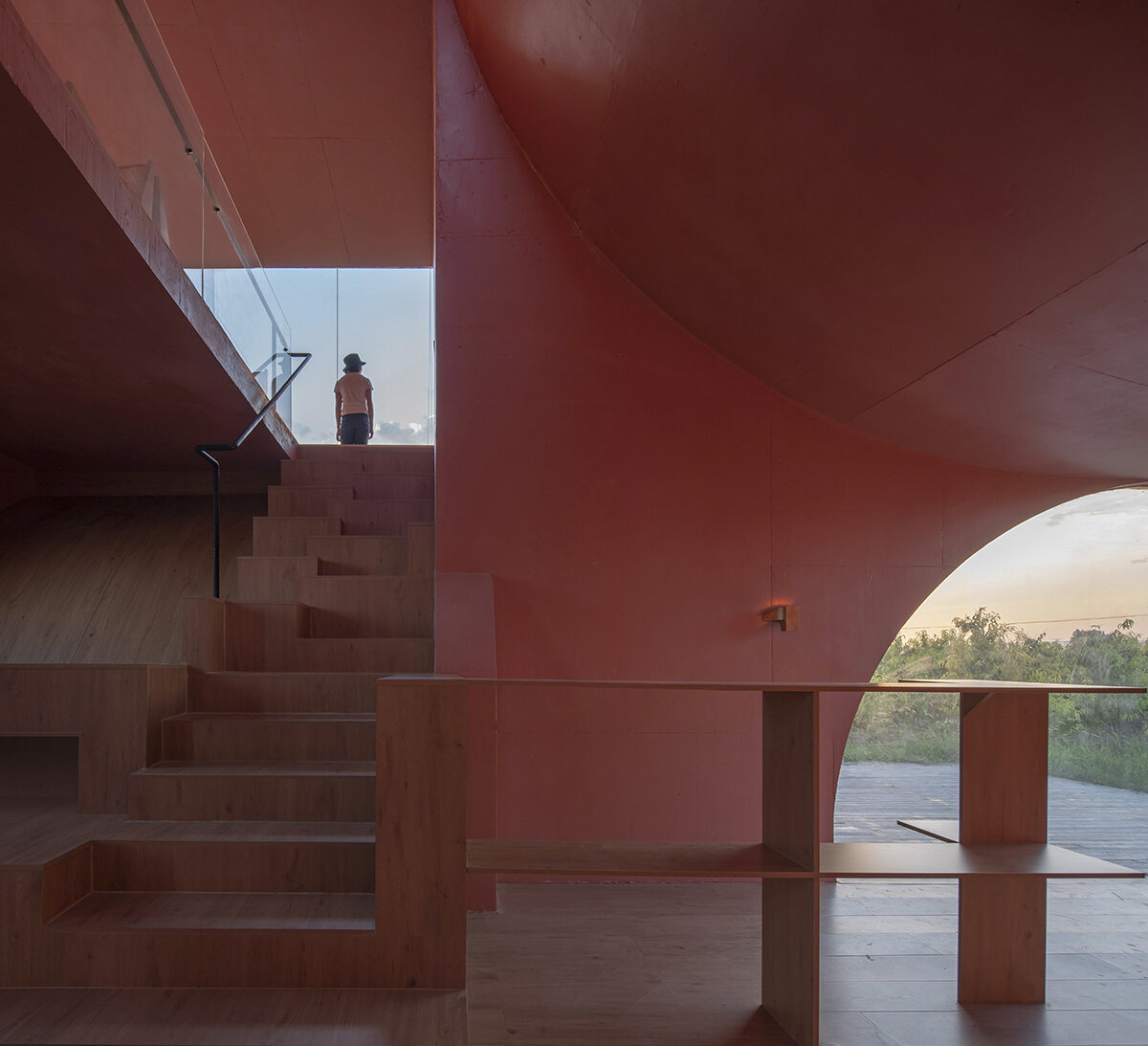
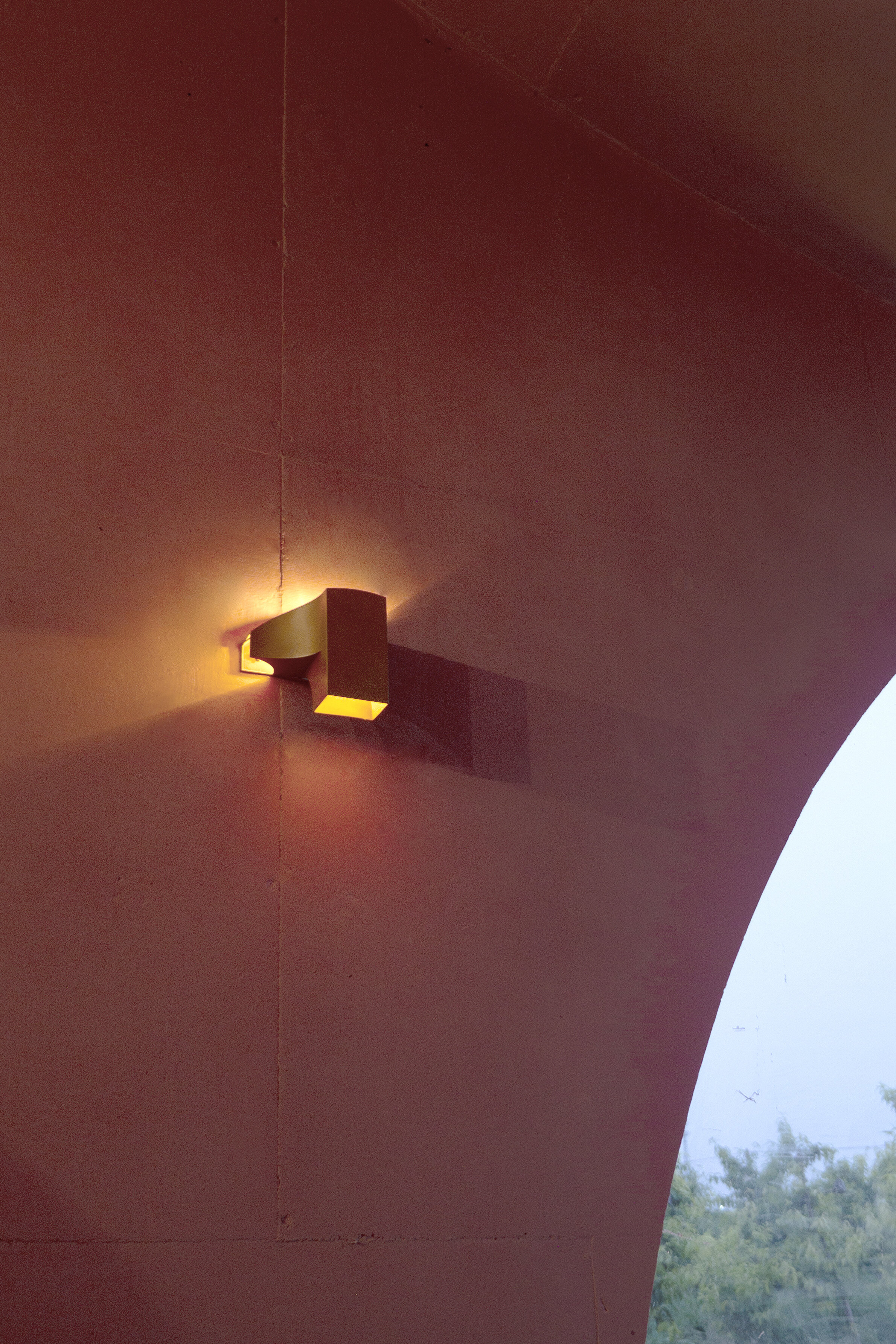
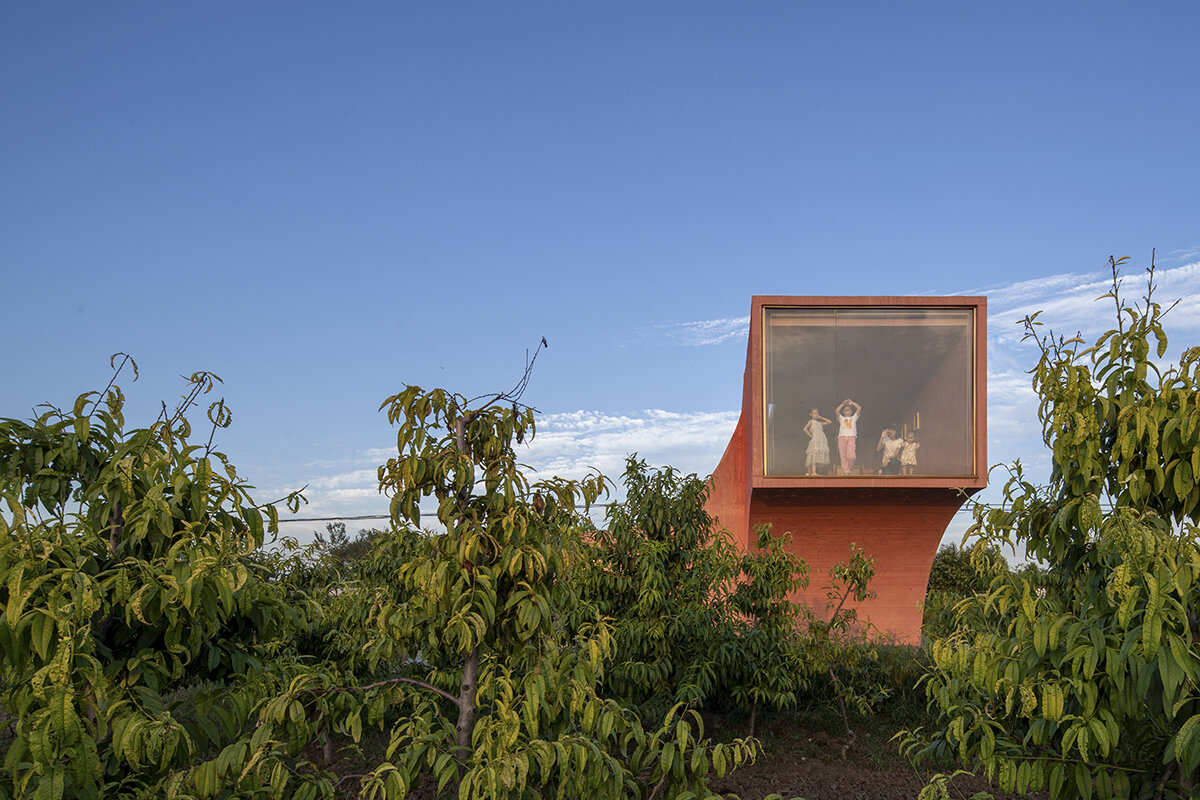
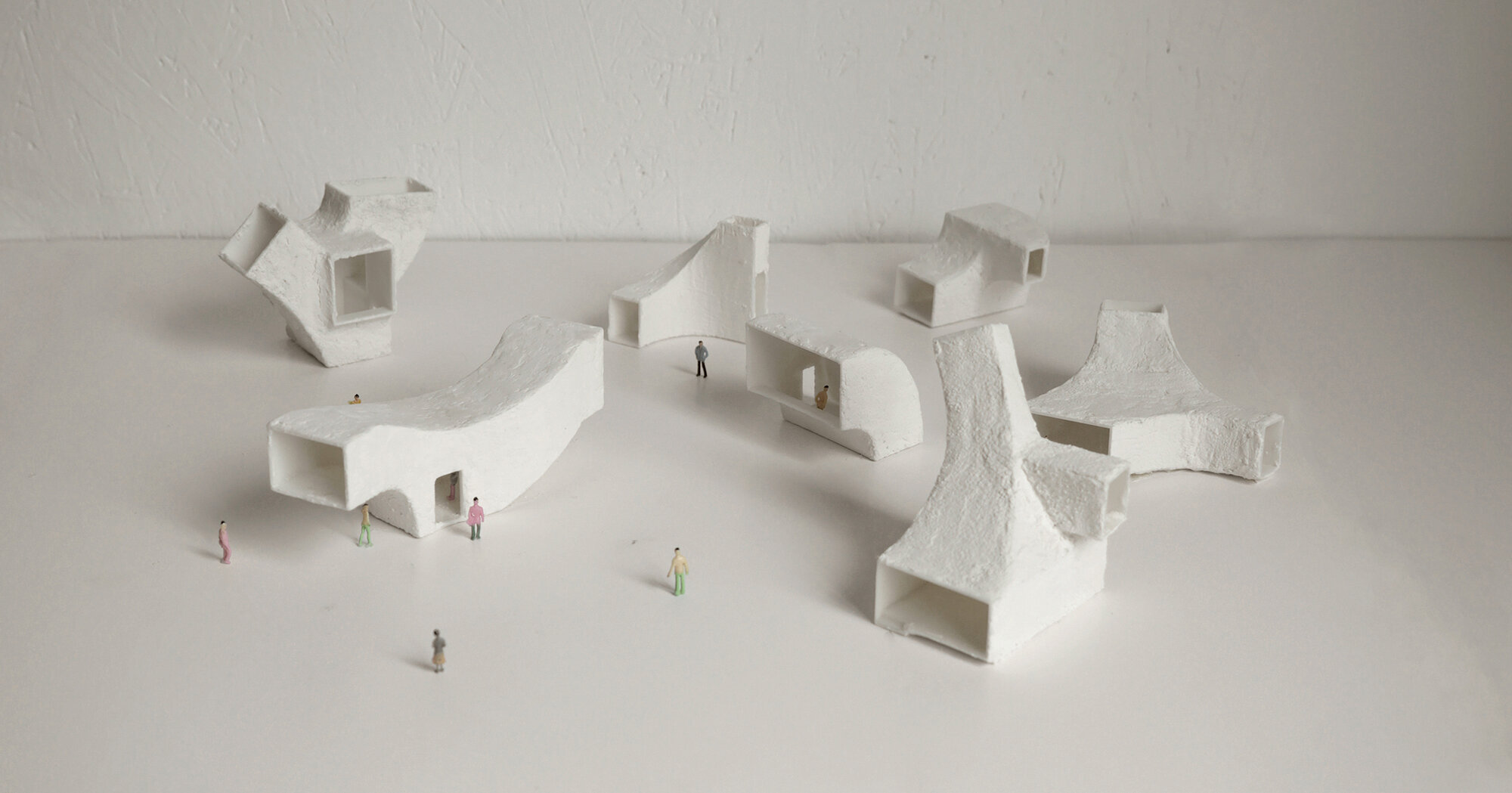
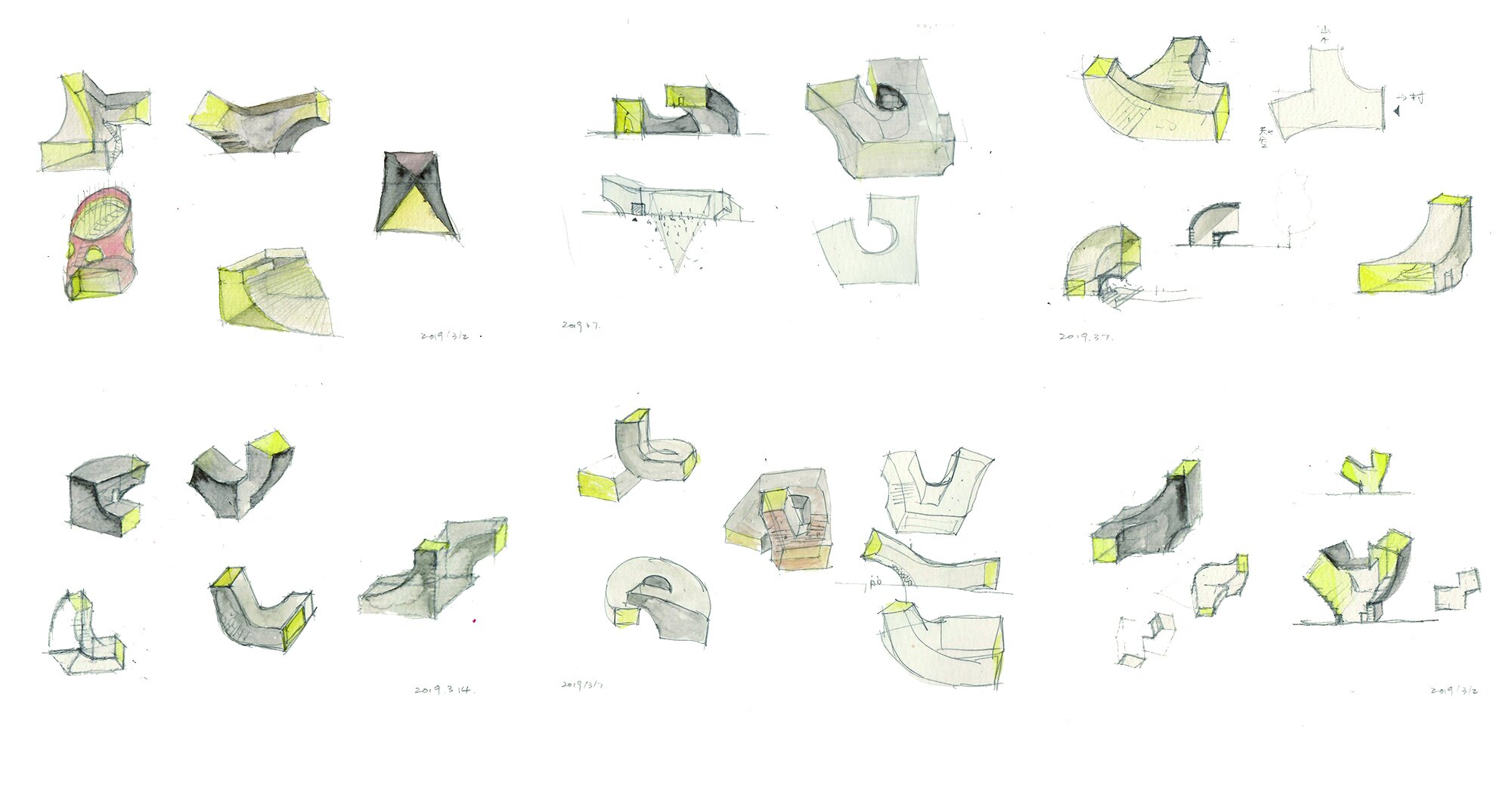
MINIATURE SERIES I – PEACH HUT
微建筑系列 I - 桃屋
最初,建筑师被委托在河南修武县设计一个300平米的文化建筑,来提升乡村社会的美学文化素养。然而考虑到630平方公里的县域面积和相距遥远的分散村落,建筑师提出将这个文化建筑单体分开成为一系列微型小品,可以更广泛的服务于社区的儿童与社区活动。
在村落里,比物质的匮乏更严峻的挑战来自教育资源、信息渠道和美学想象力的缺失。地方领导提出美学复兴乡村的主张、打造修武成为中国县域美学策源地,而建筑师希望在有限资源条件下用最微小的建筑改变隔绝和贫瘠的现实。
这些混凝土浇筑而成的微型建筑被设计为一系列带触角的树状空间,向天空生长以获取光与影,他们有的坐落在田间、有的在树林中、有的从废弃的村庄残墙里生长出来、有的在水塘中营造一个漂浮的剧场。7个单体被分期为两个阶段,第一期将是:水剧场、桃屋和废墟书屋。
In the beginning, the architect received the original commission to design a 300-square-meter public building for facilitating the county’s culture and art education in Xiuwu, Henan. However, considering the vast serving area (630-square-kilometer county area) and the difficulty of traveling between scattered villages, the architect came up with a proposal to divide one building into a series of miniature facilities in different locations so as to better serve local communities.
The long-term drawbacks of remote rural areas include insufficient educational resources, inadequate information access and scant aesthetic imagination. Thus, community leaders and the architect seek for an aesthetic approach towards rejuvenating these communities. Through these minimal architecture investments, the project aims to inspire sensibilities of local residents, to help them enjoy and rethink life quality, as well as to alleviate isolation and poverty.
These cast-in-place concrete miniatures are interpreted into a series of tree-shaped spaces with tentacles reaching out for the sky, bathing in light and shadow. Their locations vary from fields, woods, to mountaintops, and their forms differ as well: while one grows out from the ruined walls in an abandoned village, another embodies a floating theater on the water.
The construction of the seven units is divided into two phases with the first phase consisting of Periscope (a vernacular theater), Observatory (a beverage bar in a peach tree farmland) and Bent House (a communal library).
第一个落成的微建筑“桃屋”坐落于一片桃树果林中,场地上桃树呈“一边倒”形态,启发了建筑形体创作,建筑师设想建筑是由一系列来自场地上的无形弧线所切割而成,形成跃升向天空的独特形态。
在桃屋中,所有的窗户都是不同形状的,对应不同的景观与光线角度:二层落地大窗跃过并不高大的桃树林,俯瞰田庄全景;南侧圆窗沿中轴转动,面向南方果园和阳光,成为可以转动的画框;转角的竖长窗拉长了果园至村庄的景深;而屋顶横窗洒落下的阴影在每个时刻变幻着;入口角窗则以一个四分之一圆弧勾勒出弯腰的桃树和温润的土地。
"Peach Hut", the first completed miniature pavilion, is surrounded by a field of blossoming peach trees in a farmland. The trees on the site which all lean to one side, which inspired the sculptural form of the architecture. The architect envisions that the building is cut from a series of invisible arcs derived from the earth and the cloud, forming a unique shape that rises to the sky.
In the Peach Hut, all windows are of diverse shapes, responding to different views and light angles: the large floor-to-ceiling window on the second floor allows viewers to jump over the peach trees and overlook the panoramic view of the farm; the round window frame on the south side rotates along the central axis, and captures dynamic imageries of the orchard under the subtle variation of daylight; the vertical windows at the corners lengthen the depth of field from the orchard to the village at far; the shadow resulted from the skylight changes at every moment; and the entrance corner window is made as a quarter circle resembling the stooped peach trees, thus resonating with the picturesque land.
因为难忘第一次在场地上见到满园的桃花盛开,建筑师决定用粉色现浇混凝土建起这座建筑。经过一次次现场试验后,建筑师与施工队终于调配出符合期望颜色和混凝土强度的配方。建筑外墙用碳化小木模板支模浇筑勾勒出弧形轮廓的圆滑线条,建筑内部则用镜面模板浇筑起光滑的室内墙面、迎接天光的洒落。在清晨、正午、黄昏或夜色中,粉色混凝土墙面会因为不同光线而呈现出不同的颜色状态。
建筑师希望能在这个建筑中留下一些仅仅属于这片土地的印记,因此在室内用建筑体的轮廓设计制作了一个金属壁灯与门把手;而在立面上用特制模板浇筑出一棵浮雕树,向着东方日出的方位。
Impressed by the peach blossoms on the site during the first visit, the architect decided to coat the building with pink cast-in-place concrete. After repeated field tests, the architect and the construction team eventually found a formula that met the desired color and concrete strength. The exterior concrete finish is cast with small wooden formwork to outline the contour of the curved geometry, and the interior finish is cast with a smooth formwork to better reflect the skylight from above. In early morning, at noon, dusk and night, the pink concrete wall reveals different colors and qualities based on the changing light conditions.
The architect hopes to leave a few marks on the building that belong only to this piece of land. Therefore, a bronze wall sconce and black steel door handles are designed with the outline of the building; and a relief tree is cast on the concrete facade with customized formwork, orientating towards sunrise to the east.
Xiuwu 修武
Pavilion 工坊
55m2
Lead Architect 主持建筑师:Chen Xi
Design Team 设计团队:Zhu Zhu(Associate in Charge), Huang Jiajie, Wang Xingyao, Xu Lvbao, Wang Weiguo, Tian Di, Wen Weijian(Intern), Cao Suying(Intern), Han Xiao(Intern), Xu Zhiwei(Intern)
Clients 委托方: Xiuwu County
Lighting Consultant 灯光顾问: AURA Lighting Design Consultant
Construction Documents 施工图设计: Li Jianhui (architecture), Su Zhimeng (structure), Gan Bin, Xiao Liangmin (MEP)
Photography 摄影: Zhang Chao
Awards 获奖:
2021 AMERICAN INSTITUTE OF ARCHITECTS (AIA) | WINNER: SMALL PROJECT AWARDS
2021 美国建筑师协会(AIA)| 小型项目奖
2021 DEZEEN AWARDS | SHORTLIST: SMALL BUILDING
2021 DEZEEN AWARDS| 入围短名单:最佳小型建筑
2021 ARCHITIZER A+AWARDS | FINALIST: CULTURAL PAVILIONS
2021 ARCHITIZER A+AWARDS | 入围奖:文化空间
2021 ARCHITIZER A+AWARDS | FINALIST: DETAILS > ARCHITECTURE +CONCRETE
2021 ARCHITIZER A+AWARDS | 入围奖:建筑细部-混凝土
2021 FRAME AWARD | WINNER: INTERIOR OF THE MONTH
2021 FRAME AWARD | 月度最佳室内奖